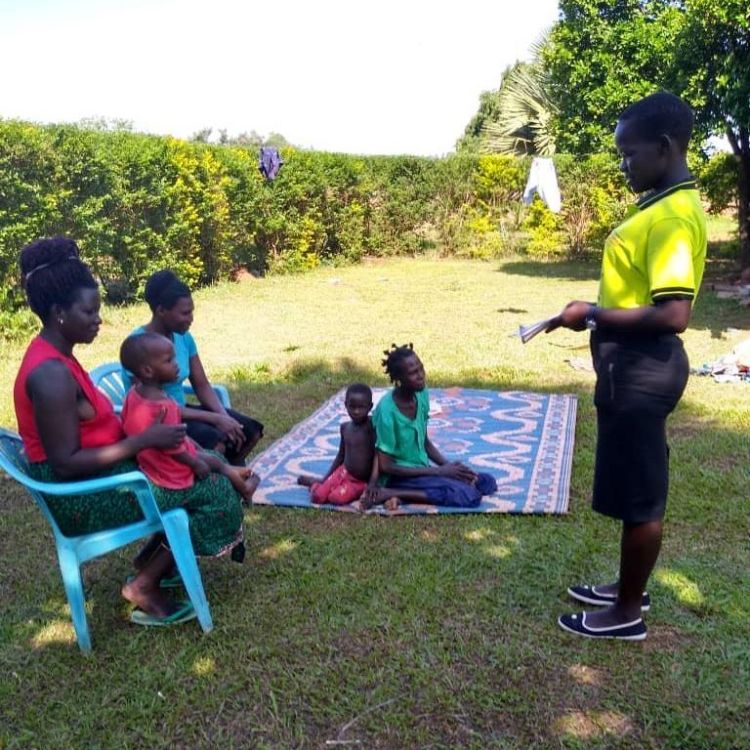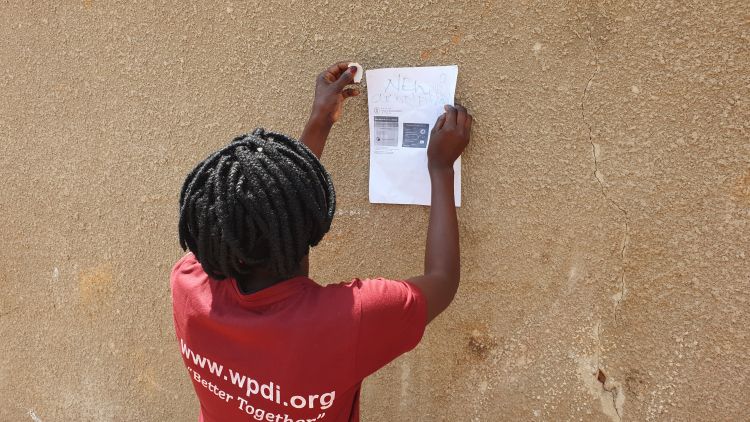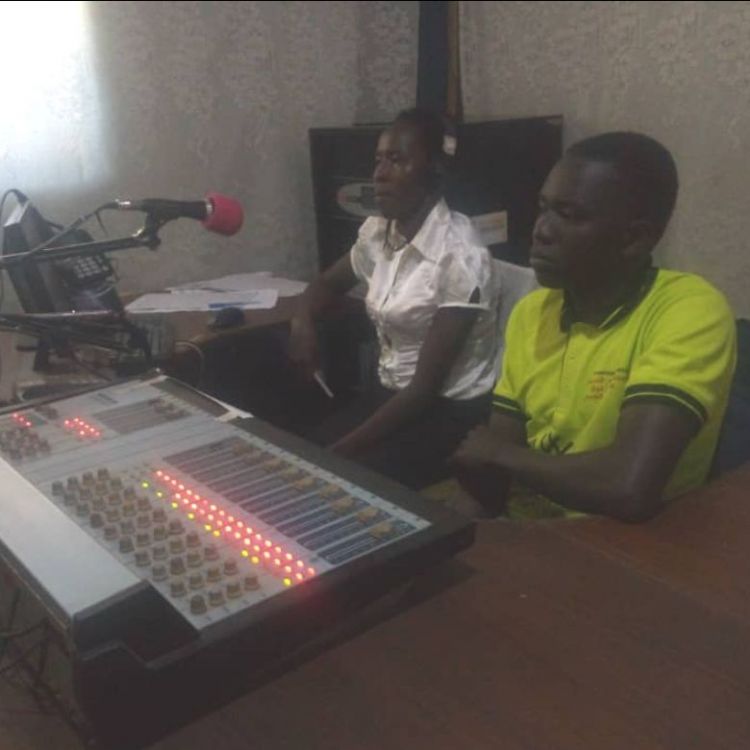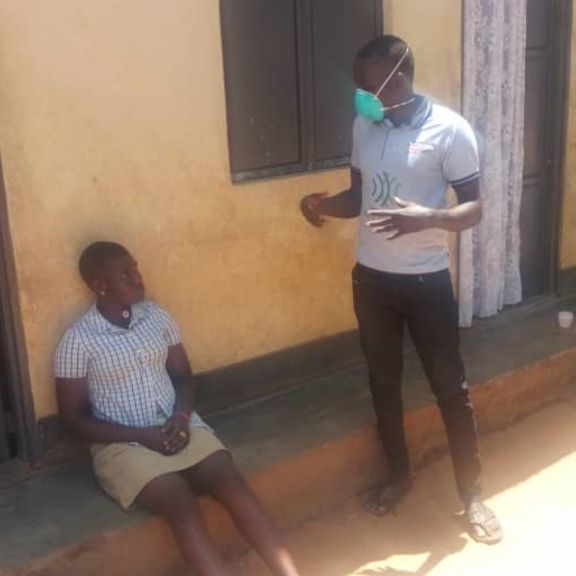
April 21, 2020 –In response to the COVID-19 outbreak, the government of Uganda put into place a nation-wide lockdown on March 30 until at least May 5. While the majority of Uganda’s current COVID-19 cases are in and around the country’s capital, Kampala, there is widespread worry that the virus could spread quickly in Northern Uganda, a region that is largely rural but also home to hundreds of thousands of refugees. Therefore, WPDI decided to take steps to help contain the spread of the virus by raising awareness in the two regions where we have programs – the Acholi Sub-Region and in and around the Kiryandongo Refugee Settlement – which have been designated by the government as areas of concern.

Informing the local population about preventive measures in such a remote area is unquestionably a challenge. However, it is one for which WPDI has a clear comparative advantage. Through our flagship program, the Youth Peacemaker Network, we’ve established and trained cohorts of young leaders in Northern Uganda whose role subsequently entails the dissemination of universal values, such as those of peace and human rights, embedded in global agendas like the Sustainable Development Goals. While the current crisis has put their projects on hold, these youths could not stand still and wanted to make a difference in their communities during these times of great need. This allowed WPDI to have a force on the ground that is trained to translate global messages issued at the international and national levels – exactly what is needed to provide data and guidance to local people on a topic like COVID-19. To ensure relevance and accuracy of information, WPDI staff started reviewing data from sources like the World Health Organization and created user-friendly factsheets that our youth peacemakers, volunteers, and local leaders can use to inform people around them – including through social media – and even post directly in various physical locations where people can see them every day.
In the Acholi, our 29 youth leaders work with 277 local youth, all participants in our program there, and with the logistical support of our office in Gulu, the main city in the sub-region. Benson, one of our very talented youth leaders from Acholi has been very active. During a recent webinar organized by our partner Education Above All, Benson told participants that , “With WPDI’s support, I have been able to disseminate relevant information on preventive measures and encourage the community to practice social distancing, avoid crowded places, wash hands frequently, and avoid touching the soft parts of the face). I have trained a village health team on the signs and symptoms of COVID-19, raised awareness through radio talk show on how communities can live with each other during this stressful time. I have also joined a district task force to identify, trace cases, and link those with symptoms to the health facility.” Benson provides us with an outstanding example of how our peacemakers can take initiatives to make a difference in the community.

At the Kiryandongo Refugee Settlement, where we operate in collaboration with the Office of the Prime Minister and the Office of the UN High Commissioner for Refugees, our local group of youth leaders – 40 of them – reached out to residents and Ugandan nationals from the areas around, working with 368 local youth. In parallel, the 570 refugee women that WPDI trained in and around the Kiryandongo settlement in Business & Entrepreneurship (and now have businesses of their own) are participating in a campaign to urge others in their communities to stay home and wash their hands regularly. Further, the networks of local leaders we have developed across Northern Uganda are also participating in the campaign by helping the youths educate the public in gathering places including water points and markets. Overall, WPDI was able to mobilize nearly 1,300 people in less than ten days, testifying to the resilience capacity of our networks and the important roles our youths and beneficiaries play in their communities.
The youths and other participants in the campaign have echoed this sentiment themselves in their reports to us. Roseline, a youth peacemaker working near Kiryandongo in the Kitgum District, noted that she was “able to reach 10 households and sensitize them about how to help prevent the spread of COVID-19. I showed them how to wash their hands and they were very thankful.” Another peacemaker, Nixon, told us how he “has visited water sites, the market, and trading centers, reaching more than 500 people. I have educated them about social distancing, hand washing, and how to wear face coverings.”

With the coronavirus upending life for so many, WPDI could still re-orient itself to help curb the spread of the pandemics at the local level in our countries of intervention – thereby staying true to its core mission of empowering local youths and stakeholders so they can become invaluably versatile resources for their communities.